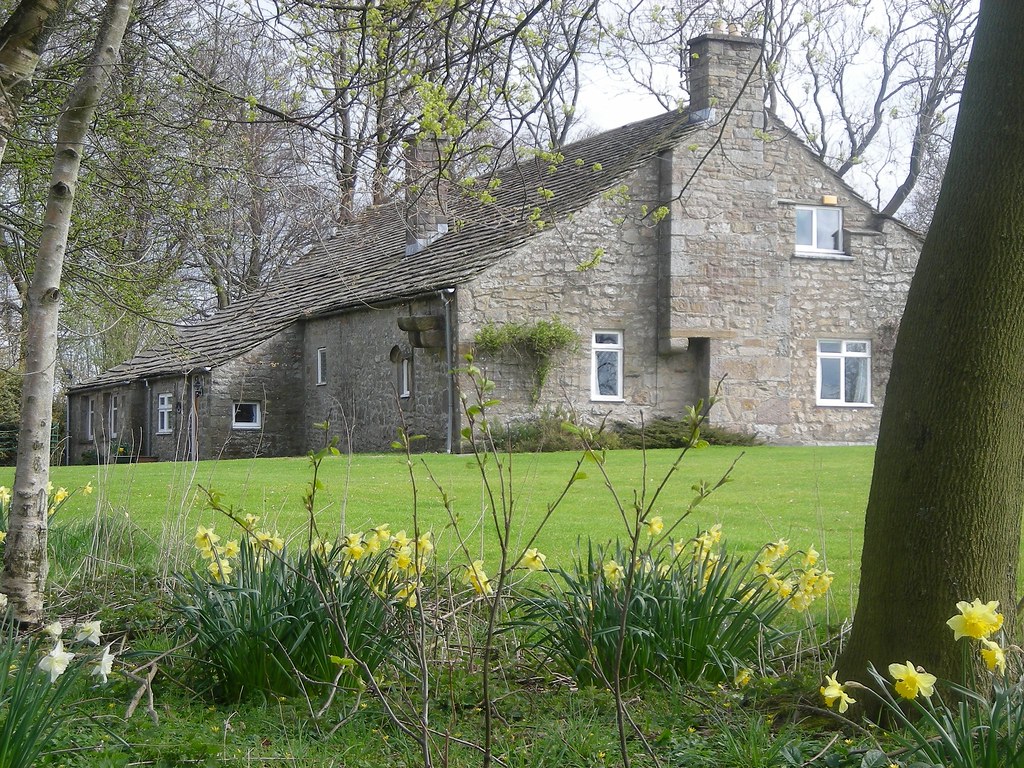
It could have been the 14th, or possibly 15th September 2001 when we first thought of it. We know now to call this ‘post 9/11 Britain’ and although the shocking twin towers collapse seemed to have nothing to do with the conception of High Barn Books, maybe we were in a way ready for something new.
We had gone to York Book Fair and picked up some books we had bought from a local bookseller. Being heavy and expensive to post it seemed sensible to go and get them while we were so close. We ended up at the house of Jeffrey Stern - quite a stunning property in itself, but even more so given the books inside - and the books outside in his substantial outhouses. Jeffrey had a radical idea. He thought we should become booksellers.
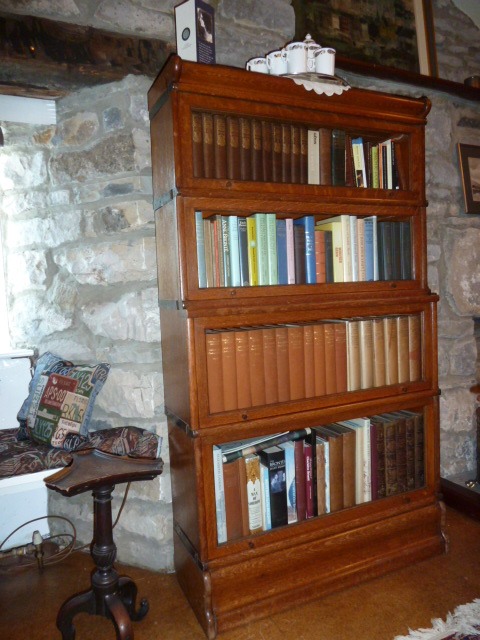
Actually this wasn’t so radical. I don’t think that any of our friends at the time would have thought it at all strange that we should go into the business. We had been collecting books since we were married in 1970 and one look at any room in our house would show that it had grown from a collection to, well, a BIG collection.
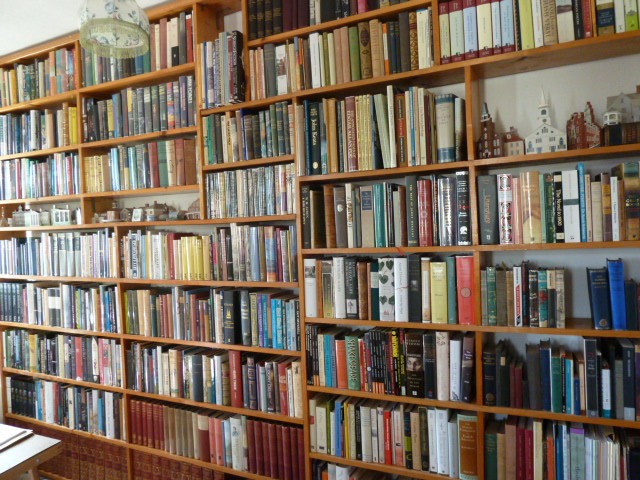
I don’t say it’s an obsession as that somehow implies piles of books in corners of every room. We have made an effort to keep the size of our book collection down to the size of the place we live - which means we either have to limit our book collection or keep buying somewhere bigger. No prizes for guessing which we did. But then suddenly it became obvious that some books we had begun to collect weren’t as interesting as they used to be. And we had new interests, new collections to build up. When Jeffrey suggested becoming sellers it immediately became apparent to us that we had some books to sell already. He thought about 300 books was enough to start selling and we felt that we had that many we could pull out of our own collection without missing them too much.
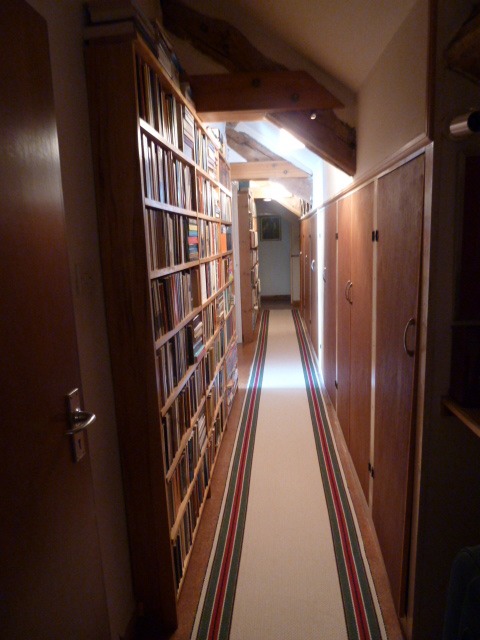
So then we had the drive home. Could we do it? Yes. What should we call it? Rabbit Lane Books? Gressingham Books? Stelandjohn’s Book Emporium? But of course High Barn Books was the one and only name in the end. 3 strong monosyllables standing firm like a solid 19th century 3-decker novel and a bit of alliteration into the bargain. We already had a company and we weren’t too sure if we could slot High Barn Books under the same umbrella. As soon as we got home we searched the internet to see if there was another High Barn Books. Assuming that the High Barn B and B in Sussex, and High Barn recording studios in Essex wouldn’t even notice, we felt confident that we had the only High Barn Bookstore in the world. And a call to our accountant on Monday morning confirmed that we could have one company that sold second hand books and were nuclear safety consultants.
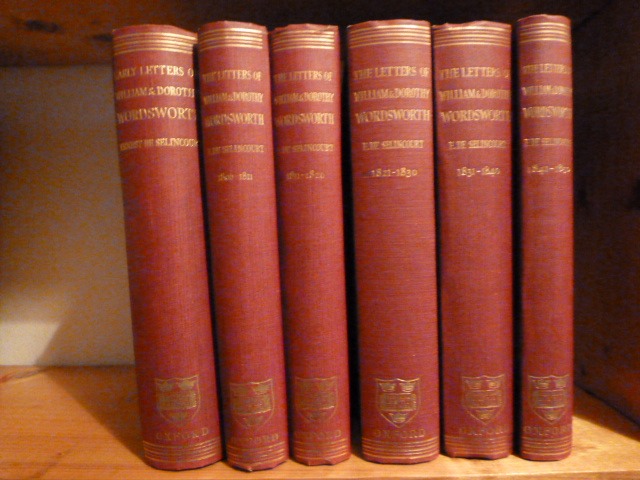
Next thing was to sort out some books and catalogue them. There seemed many frightening things to tackle about starting up a new business from scratch - not least the technology of putting things up on the internet rather than downloading them from it. I had a fair amount of knowledge of databases and so we could hash something together that way, and to my amazement I could upload to abebooks using the software we already had.
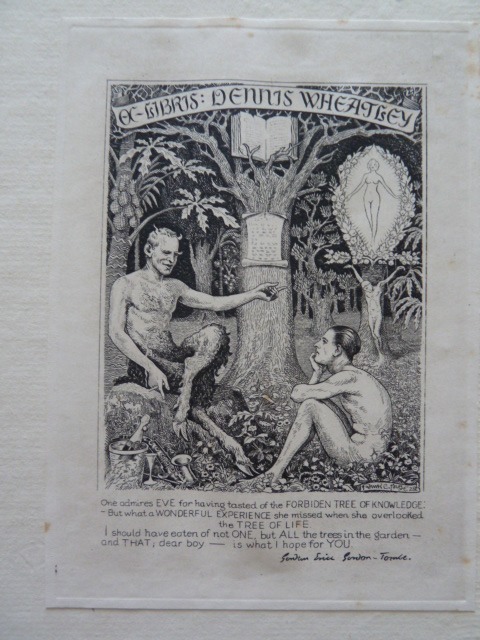
But describing books seemed to be the most frightening of all. Terrified of doing something wrongly, my first attempts consisted of cutting and pasting other booksellers’ descriptions and then changing them slightly so that they sounded like the book we were trying to sell. After a few days of this I cautiously wrote my own. Now nearly 30000 books later I can’t quite remember what I was so nervous about.
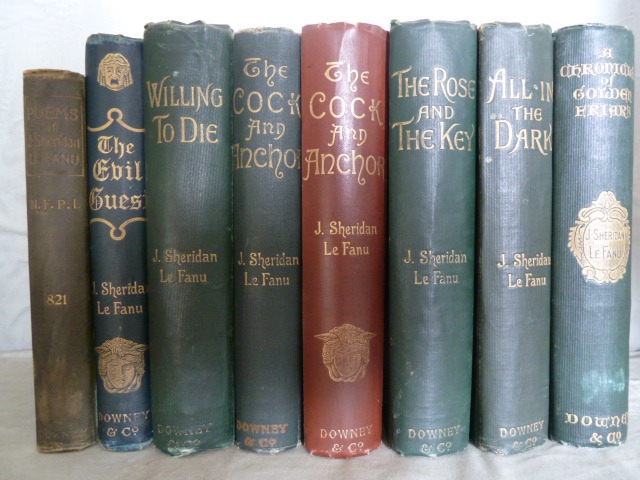
Meanwhile, on the financial front, John was busy buying nice new account books and arranging for new bank accounts in the name of High Barn Books. We had the target of getting the business going by 1st January 2002 - a 3 month margin to sort out all the ins and outs of our new venture, but we achieved our first upload to Abebooks on 25th October 2001. But of course our most important milestone was that first book sale, ‘The Legacy of England’ (Batsford) to the memorably-named Vince Prank.
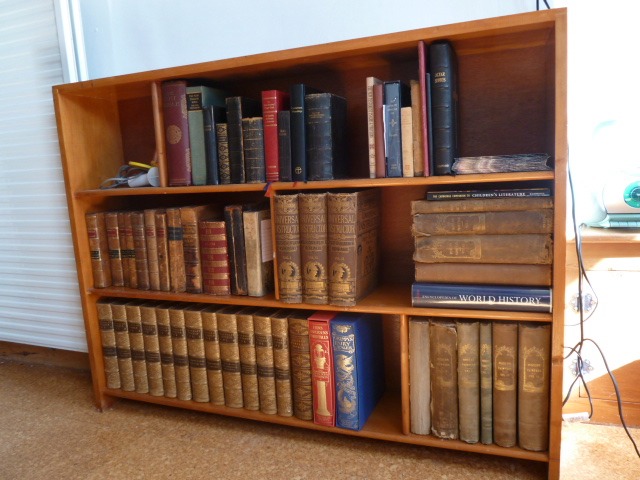
By the following May we had 1000 books online and had sold nearly 200 books and so the business grew. We picked up books along the way from charity sales, library sales, and through friends we bought collections of unwanted books, mostly locally, though some further away. Some we could put into the boot of the car, and for some we hired a decent sized van. Somehow it just grew.
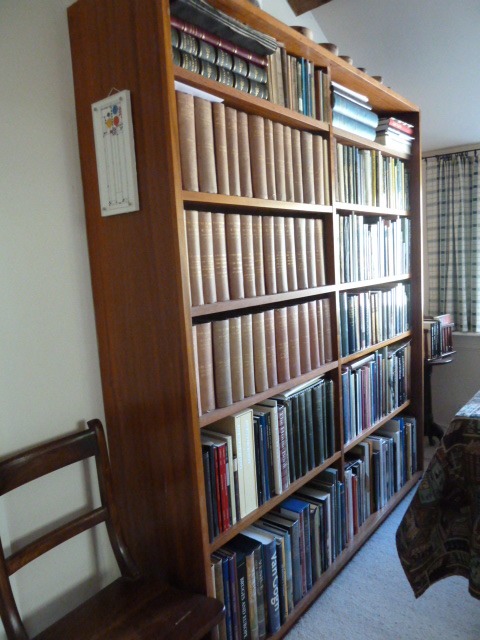
Problems of shelving our stock were relieved from time to time by bits of shelving acquired here and there over time and this entailed finding tiny bits of free wall space to put them. Now we think we have as much shelving as the house can stand, but there are also books in the garage and some in boxes. But by and large our current stock of nearly 6000 books is about the maximum we can manage here alongside our own collection and the business ticks over well at that level.
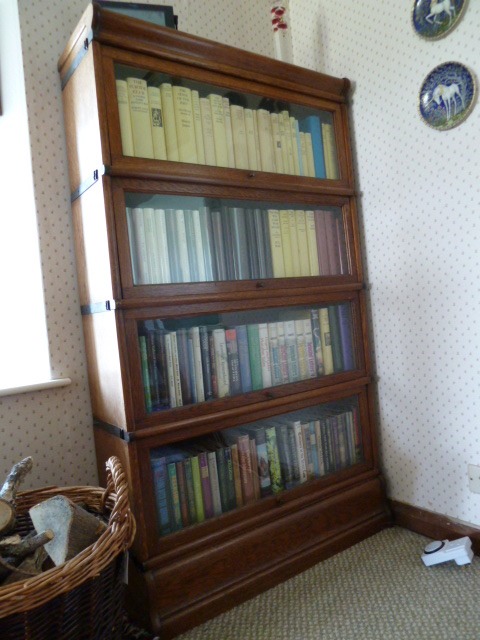
In 2001 bookselling on the internet wasn’t new - but it was, compared to now, in relative infancy. Bookselling, unlike most remote selling, lends itself perfectly to the internet. Book buyers have long been able to translate the arcane language of booksellers. Such fragments as cold. ill. or a.e.g, are easily translatable (coloured illustrations, all edges gilt) to your average bookbuyer as booksellers have been using these for years in catalogues.

Bookbuyers don’t just peer at dusty bookshelves in dustier bookshops, spectacles raised to their eyebrows, tattered sports jackets with leather elbow patches, their sit-up-and-beg bikes with wicker baskets poised to take flight with brown paper covered packages perfectly tied up with string. Sometimes they sit by their fires, pipes in hand eagerly perusing book catalogues, phones poised to ring up the bookseller to catch their latest ‘find’. So once the internet became available more widely, it was almost inevitable that some bright spark would put books up there.
Amazon, early on the scene, appeared to the internet all guns blazing to sell new books in 1995 and more discreetly, the Advanced Book Exchange in 1996. Advanced Book Exchange had the idea of matching sellers of unwanted books to buyers who wanted them. Little is left of that idea, though buyers who are looking for particular volumes can add a want and both buyers and sellers get lists of matches. But times change and Advanced Book Exchange turned into a worldwide market place and became Abebooks - with some uncertainly as to whether it should be A-B-E books or Abe as some brother of Cain who has wondered into the book of lost consonants. By 2001 Abebooks was still king of the second hand bookselling business and although they charged commission, they felt that the link between seller and buyer was paramount. It may be only 10 years later, but there have been some dramatic changes since then.
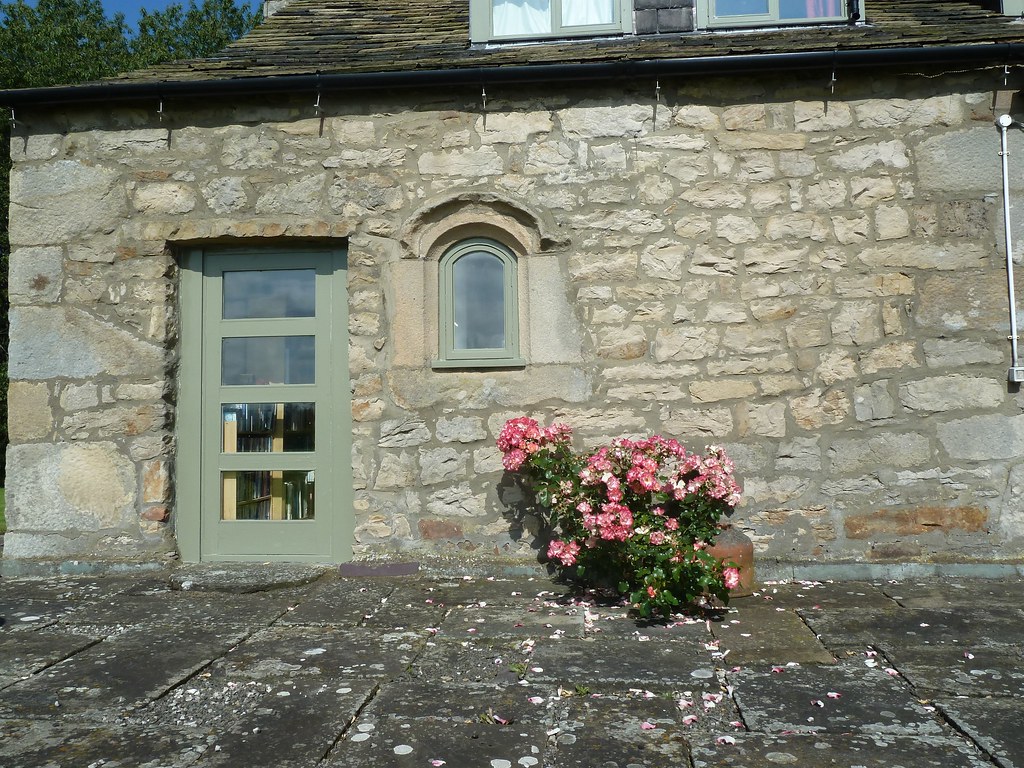
But High Barn Books keeps on going - soon to be in its second decade. We have had our own website for many years, and our packing is second to none. Our average sales are slightly above average and we enjoy what we do. The ebook may be threatening, louring above all booksellers, but we are positive. The look, feel, touch, smell of a real book will never be a phase that will pass.
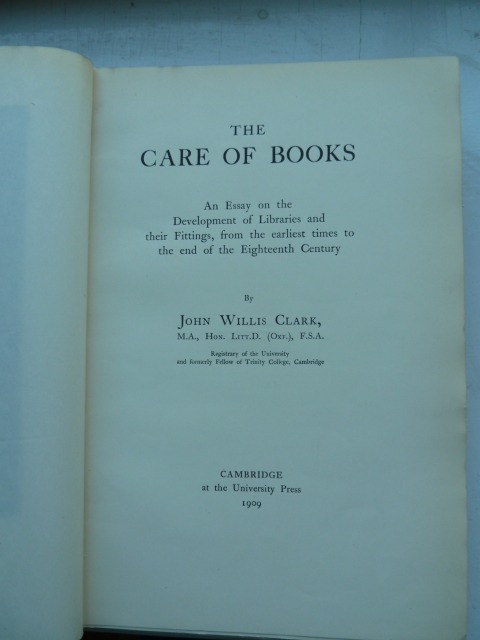
- Posted using BlogPress from my iPad

No comments:
Post a Comment
Please feel free to comment.